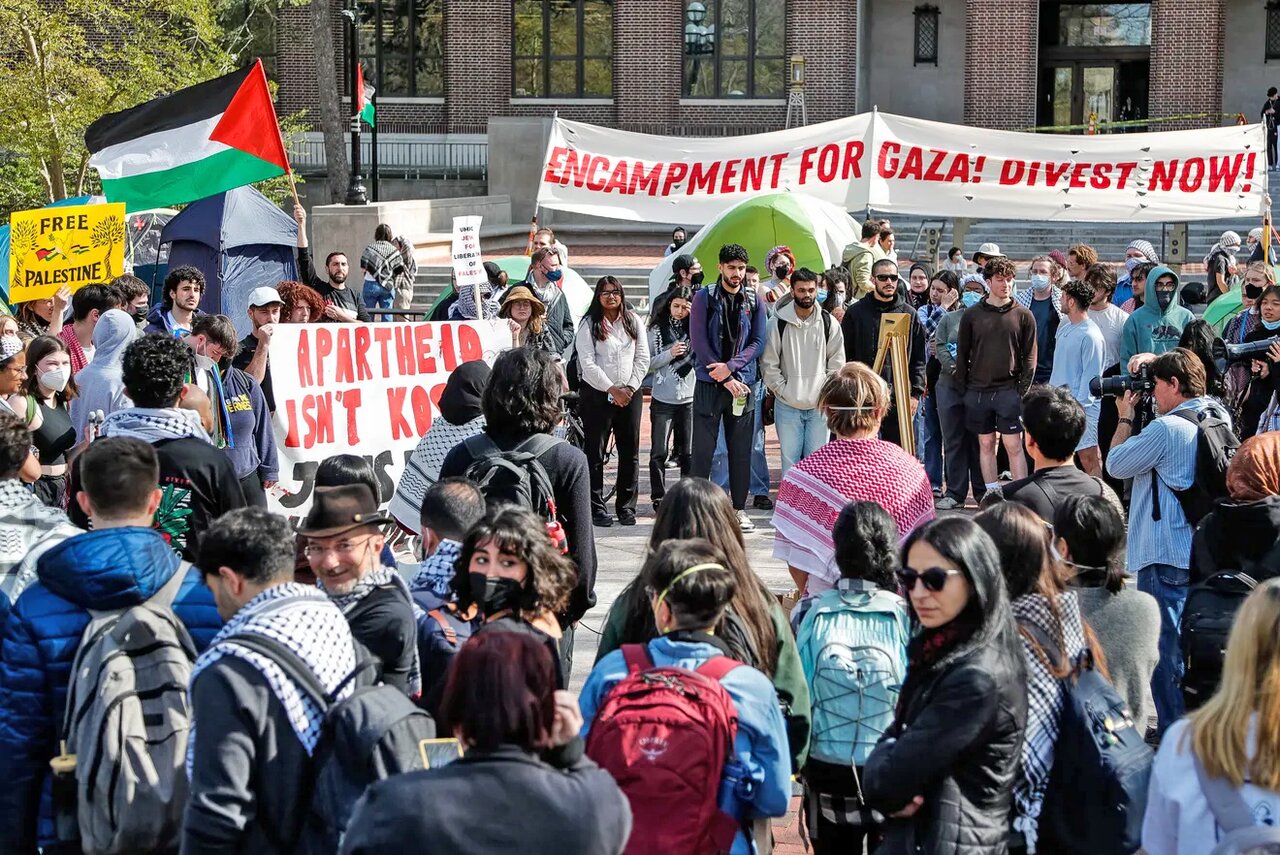‘Younger American generations gazing deeper into Palestinian issue’

TEHRAN- Samir Abu-Rumman, a visiting researcher scholar at Princeton University, has dedicated years to studying American public opinion on the Israeli-Arab conflict. His 2013 book, "Arab-Israeli Conflict in American Opinion Polls," concluded that Americans were remarkably pro-Israel. However, Abu-Rumman believes that sentiment is shifting in 2024.
In response to the Tehran Times’ inquiry about this potential change, he shared his insights:
My book, "Arab-Israeli Conflict in American Opinion Polls," explored American public opinion on the conflict between 1991 and 2008, while also considering the previous 50 years for a comprehensive understanding. My research revealed a consistent pro-Israel bias in American public opinion, a stark reality that cannot be ignored. However, there are nuances. When it comes to specific issues like a Palestinian state, settlements, and the return of refugees, opinions sometimes align more closely with the Palestinian perspective.
Public sentiment can fluctuate based on events and crises, often leading to harsher criticism of Palestinians than Israel. Even those acknowledging possible Israeli overreach often view Palestinian reactions and protests as excessive, overlooking the role the occupation itself plays in driving these responses. The occupation is at the heart of the conflict, fuelling aggression, conflict, and war.
American public opinion is diverse, and shaped by a complex interplay of factors like media coverage, personal beliefs, and education. I believe a new generation, particularly since the 2008 Gaza conflict, has shown a shift towards greater criticism of Israel and support for Palestine, especially among younger generations. This shift, fuelled in part by social media and a move away from pro-Israel bias in mainstream media, is encouraging.
However, caution and realism are necessary. The influence of pro-Israel lobbies in the U.S., evident in the actions of politicians, cannot be overlooked. It's crucial to differentiate between genuine pro-Palestine support and simply desiring a fair resolution. American public opinion is not monolithic, and while a shift is occurring, it might not be as dramatic as we hope. Change takes time, and while some progress is happening, the situation is complex and demands careful consideration.
